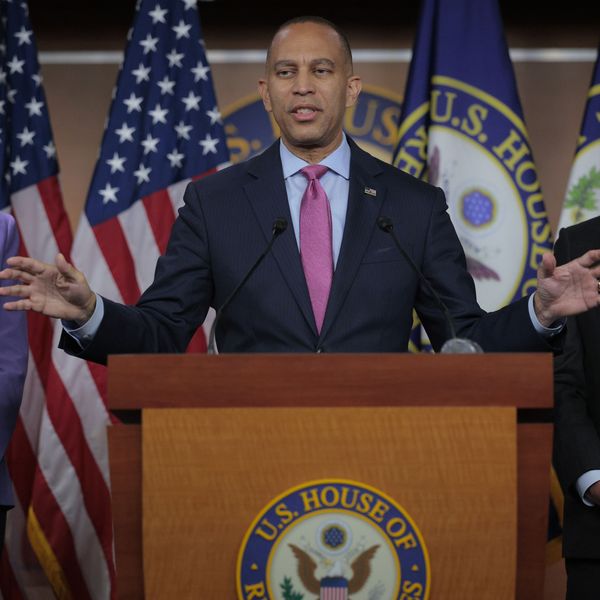The Senate moved forward on an anti-discrimination bill on Monday.
Seven Republicans joined Democrats in a 61-30 historic vote to advance debate on the Employment Non-Discrimination Act (ENDA), which would prohibit discrimination against gay, lesbian, bisexual and transgender people in most workplaces.
It will be the first time the Senate takes up the issue since 1996.
Ian Thompson, an ACLU legislative representative, said in a statement that the vote marked the nation moving "one step closer to finally enshrining in law the basic principle that job applicants and employees should be judged on their professional credentials and the caliber of their work, and not be penalized because of who they are."
"Unfortunately, in 29 states you can still be fired for who you are and who you love. That is just plain wrong," said ENDA 2013's main sponsor Jeff Merkley (D-Ore.) "This week, the Senate has an opportunity to right this wrong and stand for fairness and equality for all Americans. I urge my colleagues to put in place these commonsense protections for our LGBT friends and families."
Some equal rights advocates, however, are saying the religious exemption amendment attached to the legislation will leave some workers without protection from discrimination.
GetEQUAL, an organization that advocates for full equality for LGBT Americans, stated:
The current religious exemptions can potentially harm our community by allowing religiously-affiliated institutions from schools to hospitals to have the legal permission to discriminate against LGBT workers. Even worse, it cements discrimination into law, and sets a backward precedent that affirms the second-class citizenship of LGBT Americans.
Though the Senate is expected to pass the legislation, the New York Times notes that
The Republican-controlled House was already signaling that the bill was going nowhere fast. Even before the Senate could act on Monday, Speaker John A. Boehner said through his spokesman that the bill "will increase frivolous litigation and cost American jobs, especially small business jobs."
Senate Majority Leader Harry Reid shot back, saying, "Not only is Speaker's Boehner's claim that ENDA would hurt businesses untrue, it's also callous. It fails to take into account the heartbreak and suffering - not to mention lost wages and productivity - that workplace discrimination causes each year."
"Every employee deserves to be judged on the quality of his or her work instead of on their sexual orientation or gender identity," said Reid.
____________________


